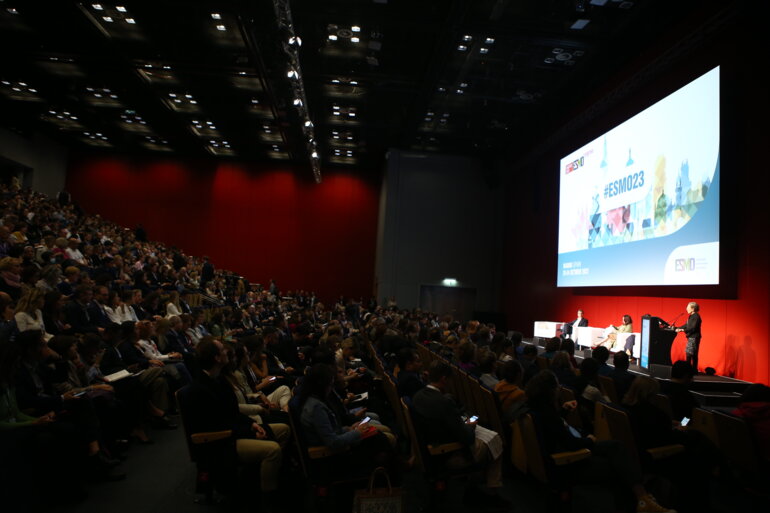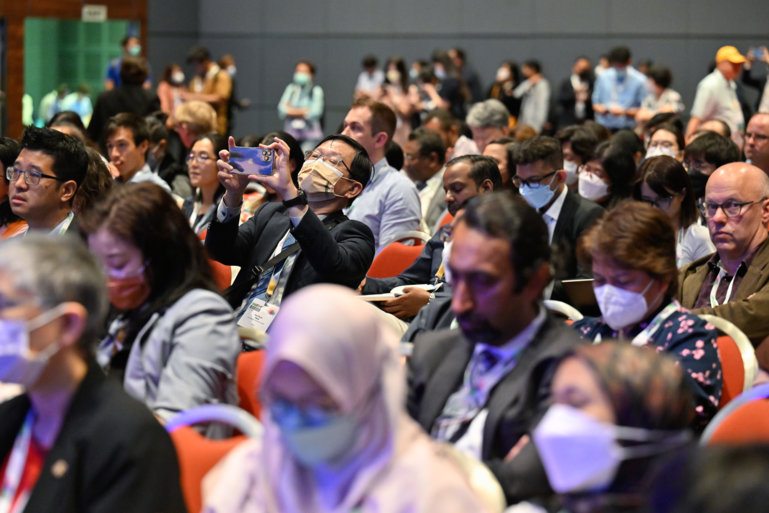As rapid scientific and technological progress raises hopes of more cancers being intercepted at the earliest stages in the future, ESMO delves deeper into prevention to ensure education and guidance for medical oncologists in this moving field
Cancer prevention and early detection through screening are not just desirable individual choices, but necessary fields of action for us as oncology community. With the global cancer burden projected to increase by 77% from 2022 to reach over 35 million new cancer cases in 2050 (Globocan) – the result of population ageing, population growth, and changes in peoples’ exposure to risk factors in the process of socioeconomic development – flattening this curve is a matter of protecting our healthcare systems, our oncology workforce, and our patients’ access to high-quality care.
Tobacco, alcohol and obesity are key lifestyle factors, and air pollution a major environmental driver of cancer development that can and should be acted upon to reduce the figures above. Of course, not all cancers can or will be avoided, but thanks to the innovative technologies currently emerging, more of those could be diagnosed earlier in the future. Blood-based multi-cancer detection tests, biomarker tests using blood or saliva samples, artificial intelligence (AI) applied to medical imaging, and even wearables and apps capable of calculating individual cancer risk scores could eventually contribute to secondary prevention to reduce cancer mortality.
As our understanding of the cellular processes involved in the initiation and development of cancer is also making great strides, it is becoming clear that, similar to the way different tumour molecular profiles now guide our treatment choices, distinct mechanisms of carcinogenesis caused by various environmental or genetic factors should lead us towards more personalised forms of ‘precision prevention’. For example, evidence has been brought forward suggesting that prostate cancer screening in Black men should begin 10 years earlier than current standards in the US, considering this group’s higher risk and mortality rates (NEJM Evid. 2024;3:EVIDoa2300289). We also know that human papillomavirus (HPV) vaccination is not yet an equally beneficial cancer prevention tool for all women, as the prevalence of certain high-risk HPV strains not covered by current vaccines varies across socioeconomic settings (Cancer Epidemiol Biomarkers Prev. 2021;30:1895–1903).
The potential to integrate emerging molecular knowledge and risk stratification profiles to allow a more accurate representation of at-risk individuals, in association with technological innovation in cancer screening, is currently generating high expectations for more effective and cost-effective prevention strategies. With this comes a need to correctly frame what we hope to achieve and what the optimal methodology should be to obtain reliable data that can then be applied in the clinic. Through the newly established ESMO Task Force on cancer prevention and early detection, chaired by Dr Suzette Delaloge, ESMO is setting out to gain an in-depth, comprehensive view of this dynamic field, contribute to developing a harmonised methodological framework for ongoing developments, and disseminate this knowledge to the global medical oncology profession.
As the field matures, ESMO will remain committed to supporting oncologists in keeping abreast of advances and making optimal use of these in their clinical practice – through the publication of guidelines, the development of educational programmes for healthcare professionals worldwide, and the presentation and discussion of new data as it becomes available. Over the next five days, the ESMO Congress 2024 will give a platform to important scientific results, further expanding our treatment armamentarium, but it will also provide educational sessions and expert discussions exploring the widening horizon of future cancer prevention.
Programme details
The dark age of single cancer screening is over. ESMO Congress 2024
Educational Session – Policy and preventive strategies, 13.09.2024, h. 16:00 – 17:30, Zaragoza Auditorium – CC5
ESMO and WHO: Tackling cancer worldwide. ESMO Congress 2024
Educational Session – Policy and preventive strategies, 14.09.2024, h. 10:15 – 11:45, Zaragoza Auditorium – CC5
ESMO-IARC – Medical oncology and cancer prevention: The odd couple? ESMO Congress 2024
Educational Session – Policy and preventive strategies, 16.09.2024, h. 10:15 – 11:45, Zaragoza Auditorium – CC5
Erdogan F, et al. Personalised cancer prevention programme (Interception): A cost analysis to inform public policy decision-making. ESMO Congress 2024, Abstract 1545MO
Mini Oral Session – Policy and preventive strategies, 16.09.2024, h. 14:45 – 16:15, Zaragoza Auditorium – CC5






